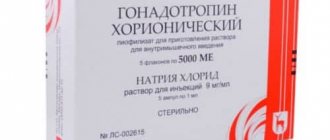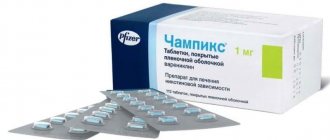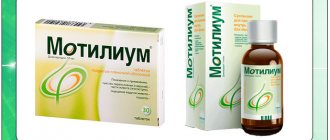Why should you get a tetanus shot?
The tetanus vaccine is included in the list of mandatory vaccinations that are listed in the national calendar. The fact is that it was not possible to get rid of the infection, despite the successes of modern medicine.
Information that every person should know about tetanus:
- The causative agent of the disease can exist both in the human body and in the intestines of animals. Together with feces, it enters the reservoir and soil. This increases the likelihood of infection if the skin is injured.
- The bacterium is a gram-positive rod. When exposed to unfavorable conditions, it transforms into spores. In this form, the infectious agent can exist for about 100 years. Spores are not afraid of low temperatures, they survive when water is boiled for 3 hours, microbes feel great in the soil.
- If a person has once had tetanus, then he develops a natural defense that lasts throughout his life. A person will not be able to get sick a second time.
- Tetanus leads to the death of children in 96% of cases, adults die in 16-80% of cases.
The need for vaccination
Modern parents often do not trust doctors and wonder whether their child needs vaccination. They explain the refusal of vaccinations by the development of side effects and poor tolerability of the vaccine.
Doctors are ready to argue with such a statement and call it irresponsible.
A complete refusal of vaccinations will lead to the emergence of almost forgotten diseases and a decrease in the general immunity of the population . This is fraught with the development of epidemics.
Other arguments in favor of vaccination:
- an acute reaction to vaccination develops in isolated cases;
- it has not been proven that complications are a consequence of vaccination;
- unvaccinated children are at risk of severe diphtheria;
- universal immunization prevents the development of epidemics;
- Diphtheria in unvaccinated children occurs with a large number of complications, and there is a high probability of death.
Vaccination preserves herd immunity. The discomfort after vaccination cannot be compared with the severity of the disease itself.
The danger of diphtheria
The disease is transmitted by airborne droplets, spreads quickly, and the risk of infection is 100%.
When it enters the blood, the diphtheria virus provokes an increase in temperature to +39 ° C, inflammation of the tonsils, and the formation of a gray coating on them.
Initially, the symptoms of diphtheria are similar to acute respiratory infections. Diphtheria exotoxin poses a danger to the patient. It spreads through the bloodstream, provokes inflammation of the heart muscle, kidneys, and affects the nervous system.
The main danger of the pathology is complications, which can lead to death.
When should you get the vaccine?
DPT is the vaccine that protects a person from tetanus. In addition to tetanus toxoids, it includes protection against diphtheria and whooping cough. The vaccine is included in the national vaccination calendar. The plan differs between children and adults.
Vaccination of children
Children are given DTP 5 times. After this, the child develops a strong immunity to the disease. He will protect it for 10 years.
Age at which a child should receive the tetanus vaccine:
- 3 months.
- 4.5 months.
- 6 months.
- 1.5 years.
- 6-7 years.
In order for immunity to remain at the required level, vaccination must be repeated every 10 years. A teenager is revaccinated for the first time at 14 or 16 years of age.
Vaccine administration to adults
Adults are given a tetanus vaccine in accordance with the Order of the Ministry of the Russian Federation No. 174 of May 17, 1999. Age when a person should receive the next vaccination:
- In the period 18-27 years.
- In the period 28-37 years.
- In the period 48-57 years.
- People over 58 years of age are given the vaccine every 10 years.
If a person has been vaccinated before, then every 10 years he is administered tetanus toxoid in the amount of 1 dose. If he has not received vaccination, then he is given 2 doses of the drug with an interval of 1 month. The next vaccination will be given in 10 years.
The following categories of citizens receive mandatory vaccination:
- Students.
- Serving in the army.
- Builders.
- Workers on the railway.
- Diggers.
In addition, if a person lives in an area that is epidemiologically unfavorable for tetanus, then he is required to be vaccinated.
Immunization of children
Vaccination of children takes place at an early stage, in several stages.
The first stage, the primary vaccination itself, takes place in three vaccinations with an interval of 1.5 months up to the age of one year (3-4.5-6).
Next, revaccination is carried out, which also takes place in three vaccinations, with only one difference - an increased interval between vaccines.
The first - at 18 months, the second at 6 or 7 years, the third at 14 years (in some cases at 16 years).
As stated earlier, a full vaccine is recommended for children under 6 years of age, while once they reach 6 years of age, a low-dose vaccine is used, as for adults.
Contraindications to vaccination against diphtheria and tetanus
There are few contraindications to the administration of the tetanus vaccine, since it does not lead to severe complications. An absolute prohibition is to administer the vaccine to those individuals who have previously developed anaphylactic shock or Quincke's edema, as well as severe neurological damage. Other contraindications are temporary, after which the vaccine can be given.
These include:
- Allergy in the acute phase. This could be diathesis, eczema, bronchial asthma, atopic dermatitis, household allergies, food allergies.
- Chronic diseases in the acute stage, for example, lung pathologies, immunodeficiency conditions, etc.
- Increased body temperature above normal values.
- Breastfeeding period, pregnancy.
- Allergy is multifactorial.
If a baby is born prematurely, he will still need to receive a tetanus vaccine, as this is not a contraindication. Children and adults who suffer from allergies are vaccinated under the guise of antihistamines. They are taken or administered in advance. After receiving the vaccine, antihistamines continue to be taken for several more days.
Emergency vaccination
If it is not known when a person was given a tetanus vaccine or whether he received it at all, but there is an emergency situation involving a risk of infection, then the patient is given an emergency vaccination. The vaccine is also given provided that more than 5 years have passed since its last administration.
Emergency vaccination is carried out in the following cases:
- Extensive burns and frostbite.
- Wounds: chopped, stab wounds, gunshot wounds.
- Bites from wild and domestic animals.
- Purulent wounds.
- Operations performed on the stomach or intestines.
- Births that took place at home or occurred outside of a hospital ward.
- Criminal abortion suffered by a woman.
Vaccination of pregnant women
In the 1st and 2nd trimester of pregnancy, women are not given the tetanus vaccine. However, during emergency surgery, an antitetanus drug is mandatory. Vaccination is carried out not using a standard vaccination, but using immunoglobulins.
If a woman is at the stage of planning pregnancy, then the vaccine is administered to her at least 30 days before the upcoming conception. This will provide the newborn baby with the antibodies he receives from the mother. They will circulate in his blood during the first 2 months of life. When less than 5 years have passed since the last tetanus vaccine, vaccination is not necessary.
Provided that the birth takes place in areas unfavorable for tetanus, pregnant women are revaccinated 2 weeks before the upcoming delivery.
Preparing for vaccination
Before vaccination, the child is shown to the pediatrician. During the examination, the doctor must confirm that the baby is completely healthy.
Children with allergies need prior consultation with a doctor. He will prescribe antihistamines 3 days before the procedure.
If shortly before vaccination the child suffered a viral or infectious disease, a urine and blood test is taken.
If anyone in the family is sick, it is better to reschedule the vaccination: there is a possibility that the baby will become infected. Diphtheria medications are not given to sick children.
What can and cannot be done after vaccination?
Once the vaccine is given, the body will begin to produce antibodies. They will protect a person from the disease. Revaccination stimulates the process of antibody production. A single dose does not provide reliable protection,
Therefore, repeated administration of the vaccine is required at certain time intervals. The production of immunoglobulins in the body can lead to certain reactions on its part, so you need to follow the recommendations given by the doctor.
Forbidden:
- One day before the vaccine and 3 days after its administration, you should not drink alcohol.
- It is not recommended to eat foods that can cause an allergic reaction: all citrus fruits, honey, fish and seafood, confectionery and baked goods, chocolate, coffee and cocoa, sweet soda.
- For 3 days, a person should not exercise or put too much stress on the body.
- It is forbidden to visit the sauna and bathhouse, and you cannot go to the pool.
- You should refrain from going to crowded places, for example, a clinic, a store, a theater, etc.
After receiving the vaccine, the following actions are permissible:
- You can take a shower.
- You can apply a sterile bandage to the injection site.
- You can take allergy medications.
- You need to stick to a light diet: drink as much water as possible, eat fresh vegetables and fruits, cereals, and dairy products.
Reaction to vaccination
The body reacts to the introduction of any vaccine, as it begins to intensively produce antibodies. This process is especially active after the first vaccination in life. Although the tetanus vaccine is not highly reactogenic, certain symptoms may still occur. If they do not pose a threat to life, then this is considered a variant of the norm. Most often, patients tolerate the tetanus vaccine easily.
Local reactions may be as follows:
- Redness of the skin area where the injection was given.
- The appearance of a lump at the injection site.
- Cone formation.
After a few days, all reactions will go away on their own; no special measures need to be taken. In addition to the listed symptoms, a person may experience a slight increase in body temperature, sometimes increased lethargy, weakness, and drowsiness. This happens for the following reasons:
- The vaccine hurts.
After the injection is given, pain may be felt in the area where it was administered. Normally, after 2-3 days, all discomfort goes away on its own. The pain occurs due to the vaccine getting into the fatty tissue. The drug penetrates the blood slowly, resulting in an inflammatory reaction, which is expressed by a local increase in temperature, pain and swelling. If the pain causes severe discomfort, you can take a drug from the NSAID group, for example, Ibuprofen or Indomethacin.
- My hand hurts.
The arm hurts after an injection is given in the shoulder or under the shoulder blade. This is due to the penetration of the drug into the subcutaneous tissue. The vaccine contains aluminum hydroxide, which causes inflammation. When the drug is completely dissolved, the pain will go away. To speed up this process, you can apply troxevasin ointment to the injection site, and also take NSAIDs.
- A lump forms.
Since there is no abundance of blood vessels in the area where the vaccine is administered, the drug will not dissolve instantly. Therefore, its introduction is accompanied by the formation of a compaction. This is normal. The vaccine will enter the blood slowly, which will ensure the correct formation of immunity. If the entire dose of the drug immediately dissolves in the blood, the body will simply destroy it and the person will be left without protection. The time for complete resorption of the vaccine, and therefore the lump, takes 1-2 months.
- The muscle swells.
The swelling is due to inflammation at the local level. The skin turns red, swells, and slightly hurts. The area of redness should not be more than 8 cm in diameter, and the size of the bump should not be more than 2 cm.
- Body temperature rises.
Body temperature can reach 39.5 °C. It should be stored for no more than 3 days. If your body temperature rises to 40°C, you should seek medical help. This reaction is considered hypertoxic and is dangerous.
Rarely, but reactions such as bronchitis, rhinitis, pharyngitis can still occur. A blood test may reveal leukopenia and agranulocytosis. From the cardiovascular system, disorders such as increased heart rate may occur. In some patients, salivation increases, vomiting and nausea develop, and the stool becomes liquid.
The rarest reactions of the body include convulsions, loss of speech and partial paralysis.
Complications
Complications may occur after receiving a tetanus shot. There are two options for their course: the immediate type and the delayed type. In the first case, a person develops an allergic reaction, manifested by skin itching and urticaria, Quincke's edema or anaphylactic shock may occur. In the second case, the patient has intestinal dysbiosis and serum sickness. A delayed reaction is caused by a violation of aseptic rules during the injection, or by improper storage of the vaccine itself.
- Abscess or cellulitis.
This complication manifests itself in intense pain, increased body temperature and the appearance of symptoms of intoxication.
- Neuritis.
Neuritis is a consequence of the vaccine entering the nerve. In humans, the functioning of internal organs that are innervated by the affected nerve is disrupted. The arm, hip, shoulder blade may hurt, and limb movements may be difficult.
Answers to popular questions
- Why does tetanus cause death?
There are several reasons for the death of patients - a fracture of the spinal column, cessation of cardiac activity, suffocation.
- What are the complications of tetanus?
Complications include: convulsions with bone fractures, bronchitis, pneumonia, pulmonary atelectasis, sepsis, compression and deformation of the spine.
- What types of vaccines are there?
During routine vaccination, the vaccine used is DPT (whooping cough, diphtheria, tetanus), ADS (diphtheria and tetanus), ADS-M (small dose of a drug for tetanus and diphtheria), Infanrix (tetanus, diphtheria and whooping cough, the vaccine is manufactured in Belgium), Tetrakok (the vaccine is supplemented with a drug against polio, it is produced in France). If an emergency vaccine is required, then the drug AC, that is, tetanus toxoid, is used.
- How long does it take to fully recover from tetanus?
? From 45 to 60 days.
- If parents refuse to give their child a tetanus vaccine, can they be forced to do so?
No, if parents refuse in writing, then the child will not be given the vaccine.
- Do adults have to pay for tetanus vaccinations? Where can I put it?
The vaccination is free and can be done at any medical institution, for example, at a primary care facility or a community clinic.
- What is the prognosis for tetanus?
The prognosis is largely determined by the form of the disease; if it is generalized, then the prognosis is unfavorable. The length of the incubation period is also important; the shorter it is, the worse. If the infection is mild, then the person recovers completely from the disease. With the fulminant course of tetanus, patients most often die.
Author of the article:
Mochalov Pavel Alexandrovich |
Doctor of Medical Sciences therapist Education: Moscow Medical Institute named after. I. M. Sechenov, specialty - “General Medicine” in 1991, in 1993 “Occupational diseases”, in 1996 “Therapy”. Our authors









